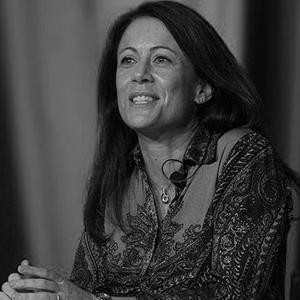
Dana Bourland
Vice President, Environment Program, The JPB Foundation
Dana is Vice President of the Environment Program at The JPB Foundation. Dana is leading the creation and development of the program with a goal to enable resilient communities across the US. Formerly Dana was Vice President of Green Initiatives for Enterprise Community Partners where she led environmental strategy for the national organization. A Returned Peace Corps Volunteer, Dana is a graduate of Harvard University’s Graduate Program in Real Estate and holds a Master of Planning Degree from the Hubert H. Humphrey Institute of Public Affairs, Univ. of Minnesota. She is cited in numerous trade and popular publications for work on the intersection of health, poverty and the environment and has contributed to several books on the topic of sustainable development including “Apollo’s Fire: Igniting America’s Clean Energy Economy;” ,“Growing Greener Cities: Urban Sustainability in the Twenty-First Century;” “The Next American Opportunity: Good Policies for a Great America.”
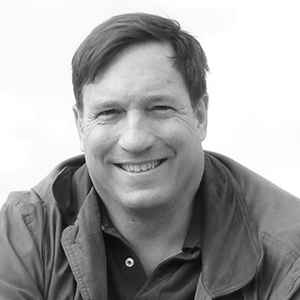
Bill Browning
Co-Founder, Terrapin Bright Green
BED Colorado University, MSRED MIT, Hon. AIA, LEED AP., is one of the green building and real estate industry’s foremost thinkers and strategists, and an advocate for sustainable design solutions at all levels of business, government, and civil society. Early in his career, Bill built Buckminster Fuller’s last experimental structure. In 2006, he cofounded Terrapin Bright Green is an environmental strategies research and consulting firm. Browning’s clients include Disney, New Songdo City, Lucasfilm, Google, Bank of America, the White House, and the Sydney 2000 Olympic Village. Browning is a founding board member of USGBC. In addition to consulting, Bill writes and lectures widely on sustainable design and building practices. He is a co-author of Green Development: Integrating Ecology and Real Estate; A Primer on Sustainable Building; Greening the Building and the Bottom Line; Biophilic Design; The Economics of Biophilia; Midcentury (un)Modern; and 14 Patterns of Biophilic Design.

Doug Farr, FAIA, LEED AP
Founding Principal and President, Farr Associates Architecture and Urban Design
Doug Farr, FAIA, LEED AP is the founding principal and president of Farr Associates Architecture and Urban Design. Doug is a national leader in planning and designing sustainable neighborhoods and buildings. He is a published author who lectures widely on the topics of urbanism and sustainability. Under his leadership, Farr Associates has designed seven LEED-Platinum buildings, two of which are net-zero energy projects, and four LEED Neighborhood developments.
Doug founded the U.S. Green Building Council’s LEED for Neighborhood Development (LEED-ND) Core Committee– the interdisciplinary group of professionals who created the first rating system for sustainable land development. Launched in 2009, LEED-ND integrates smart growth, walkability, and green building practices into standards and metrics that scale up sustainability to a neighborhood level.
Based on the firm’s pioneering sustainable design practice and insights gained from chairing LEED-ND, Doug authored the urban planning best-seller Sustainable Urbanism: Urban Design with Nature in 2008. His follow-up book entitled Sustainable Nation will be released in 2017. Doug recently served as chairman of the Executive Board of the Congress for the New Urbanism. He is an architecture graduate of the University of Michigan and Columbia University.
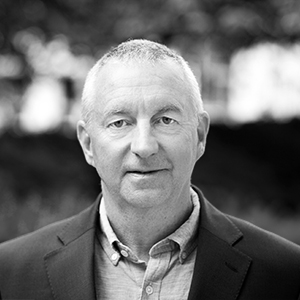
Kevin Hydes
President & CEO, Integral Group
With over 35 years of experience as an engineer, Kevin is internationally recognized as a leader in sustainable design and for his contributions to the building industry. A pioneer of sustainable building systems’ design, Kevin’s commitment to advancing its cause began over 20 years ago. Shaping healthy building codes and standards at the policy level, internationally, Kevin has served as a Technical Advisor for several organizations, including: Clinton Climate Initiative, Climate Carbon Positive Community; One Planet Communities; Government of Singapore, International Panel of Advisors (IPE); Peer Advisor to the GSA National Registry of Peer Professionals; and Honorary Member of the Royal Architectural Institute of Canada and the Architectural Institute of British Columbia. In 2012, Kevin was named a LEED Fellow and currently, he is serving on the Board of Directors of the Northern California Chapter of the USGBC, for which he was also a founding Board Member. Kevin is the former Chair of the USGBC and World Green Building Council (WorldGBC), past Chair of the Cascadia Chapter, and a Co-Founder of the Canada Green Building Council (CaGBC). Through his work on these initiatives, Kevin has helped shape legislative policy that encourages an environmentally-sound built environment.
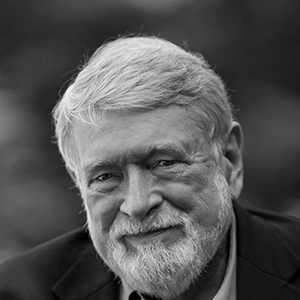
David Korten
Co-founder and Board Chair, YES! Magazine; President, Living Economies Forum
David Korten is co-founder and board chair of YES! Magazine, president of the Living Economies Forum, a member of the Club of Rome, and a member of the advisory board of the Institute for Postmodern Development of China. He writes a bi-weekly “A Living Earth Economy” column for YES! and is the author of numerous books, including the international best-seller, When Corporations Rule the World, Change the Story, Change the Future: A Living Economy for a Living Earth, Agenda for a New Economy: From Phantom Wealth to Real Wealth, and The Great Turning: From Empire to Earth Community. He holds MBA and Ph.D. degrees from the Stanford Business School, has thirty years of experience as a development professional in Asia, Africa, and Latin America, and has served as a Harvard Business School professor. He lives with Fran Korten, his life partner of more than 50 years and Executive Director/Publisher of YES! Magazine, on Bainbridge Island, WA.
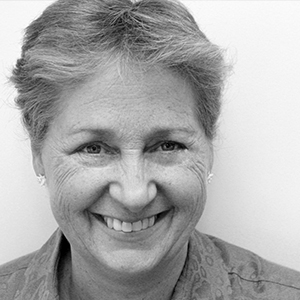
Vivian Loftness, FAIA, LEED Fellow
University Professor, Paul Mellon Chair of Architecture, School of Architecture at Carnegie Mellon University
Vivian Loftness, FAIA, LEED Fellow, is University Professor, Paul Mellon Chair of Architecture and served a decade as Head of the School of Architecture at Carnegie Mellon University. With over 30 years of industry and government funding, she is a key member of Carnegie Mellon’s leadership in sustainability research and education, the author of eight book chapters and editor of the recent Springer Reference Encyclopedia Sustainable Built Environments. She has served on the Board of Directors for the National Academy of Science’s Buildings and Infrastructure Committee, the USGBC, AIACOTE, Phipps Conservatory, and AtSite Inc. In 2013, Vivian was recognized as a LEED Fellow, Senior Fellow of the Design Futures Council, and one of 13 Stars of Building Science by the Building Research Establishment in the UK. In 2014 and 2015, she was honored as a Hanley Award nominee for Vision and Leadership in Sustainability and received the Award of Distinction from AIA Pennsylvania. Vivian Loftness has a Bachelors of Science and a Masters of Architecture from MIT.
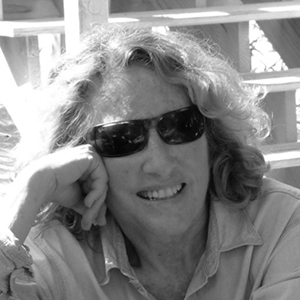
Susan A. Maxman, FAIA
Founding Principal, SMP Architects
Ms. Maxman is a nationally recognized advocate for sustainable design as evidenced by her
architectural practice and professional activities. As acting principal of her firm from 1980 to 2008,
Ms. Maxman challenged herself and the firm to consistently design in a way that tread lightly on the
earth. Firm projects have been recognized nationally for excellence in design and sustainability
receiving more than 50 honors and awards from numerous organizations including The American
Institute of Architects at the National, State and Local Levels, the US Department of the Interiors and
The White House.
When President of the American Institute of Architects in 1993, Ms. Maxman made sustainability a
priority of her administration. Under her leadership the AIA and International Union of Architects jointly
sponsored a convention focused on architecture and the environment.For her advocacy of sustainable
design she has received many honors including two Honorary Doctorates.iet Water Canoeing and Kayaking.
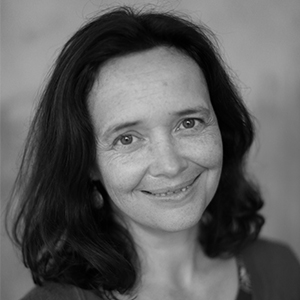
Amanda Sturgeon, FAIA, LEED Fellow
CEO, International Living Future Institute
Amanda Sturgeon has been with the Institute for over 5 years, initially overseeing the programs, then as Executive Director and now as CEO. She joined the Institute following a career as a licensed architect with fifteen years experience designing and managing some of the most sustainable buildings in the Pacific Northwest. Prior to joining the Institute she co-directed the Sustainable Design Initiative for Perkins + Will across 20 offices worldwide and managed numerous sustainable projects. She has served on many boards and committees and has taught at the University of Washington as well as Bainbridge Graduate Institute. Amanda was a founding board member of the Cascadia Region Green Building Council and a recent board member of AIA Seattle. Amanda was elected as a Fellow of the American Institute of Architects in 2013 and a LEED Fellow later the same year in recognition for her extensive advocacy and volunteer service to the green building movement. She was named as one of the top ten most powerful women in sustainability in 2015 as a recipient of the Women in Sustainability Leadership Award.
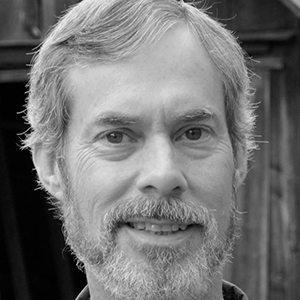
Alex Wilson
President, Resilient Design Institute; Founder Building Green, Inc.
Alex Wilson is president of the Resilient Design Institute, a nonprofit organization working to advance the adoption of resilient design into buildings and communities. He is also founder of BuildingGreen, Inc., a highly respected consulting and information company. He is a widely published writer on green building, energy, and the environment.
Alex served on the national board of the U.S. Green Building Council from 2000 – 2005, and In 1993 he received their Leadership Award for Education; in 2010 he received the second annual Hanley Award for Vision and Leadership in Sustainability.
Alex lives in Dummerston, Vermont in a 200-year-old, net-zero-energy home that demonstrates sustainability and resilience. He and his wife are also working to bring back into production long-neglected farmland on the property. Alex is an avid outdoorsman and has coauthored a series of books for the Appalachian Mountain Club on Quiet Water Canoeing and Kayaking.
